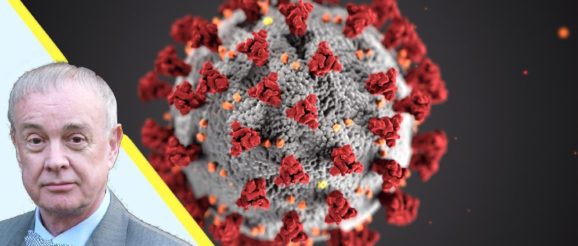Innovation will beat Coronavirus

Innovation will beat Coronavirus
BY MADSEN PIRIE
When
I published “Britain and the World in 2050” (ASI 2016), I made the point that
while increased globalization and international travel make it possible for new
diseases to spread more rapidly to different parts of the world, our ability to
bring them under control is also speeding up. This century we have successfully
dealt with the Ebola epidemic in Africa, and the Zika virus in Latin America.
We have contained the severe acute respiratory syndrome (SARS), the H5N1 bird
flu virus, and the Middle East respiratory syndrome (MERS), sometimes known as
camel flu. Rapid quarantine measures to isolate those infected and restrict the
spread, plus the development of new treatments, have rendered these illnesses
much less damaging than they might previously have been.
The coronavirus had its DNA sequenced within days of its appearance, and more than 20 teams in different countries are currently working to analyze its vulnerabilities and develop a vaccine to it. If the usual precautionary delays are waived, viable vaccines might be available before the summer.
What this tells us is that human ingenuity can solve problems if it is allowed and encouraged to. It is the one unlimited resource. All too often we inhibit and limit invention because of concern that it will upset and dislocate existing economic and social situations, and bring unanticipated problems in its wake. Governments and pressure groups demand limits and licences to restrain the dislocation and upset that technological developments and new practices bring in their wake.
The
reality is that such innovations do bring churn and change, and present new
problems. But we solve these in their turn as they appear, and we emerge richer
than before, and with more opportunities to lead fulfilling and rewarding
lives. Invention does bring change, but that change brings improvement.
Those fearful of change oppose such developments as genetic modification and want to limit the knowledge that DNA research brings in its wake. They warn against using Artificial Intelligence to speed up our research, or allowing nanotechnology to develop new treatments lest it becomes “uncontrollable.” Yet it is this kind of research that enables us to respond more readily and more rapidly to new diseases as they emerge. Invention and innovation have armed us with new weapons with which to greet new foes.
I predicted in that 2016 study that we will not, by 2050, have eliminated mutations that allow animal diseases to spread to the human population, but we will have increased the range and speed of our response to them. This in 2020 is already evident.
Dr Madsen Pirie is President of the Adam Smith Institute.
